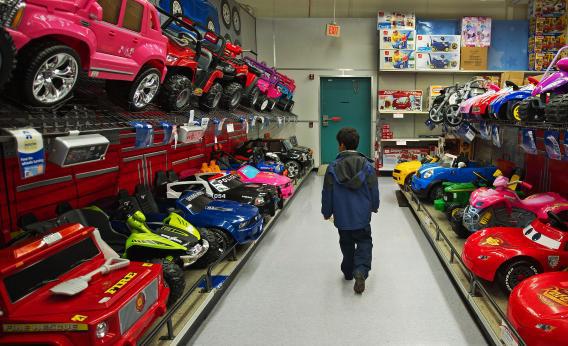Man, we are so screwed.
This gut-churning Wall Street Journal article describes how anthropologists from UCLA are studying the habits of the American middle class. By analyzing weeklong video recordings taken inside the homes of Los Angeles-area families, the scholars are trying to understand what makes American children so helpless and needy, compared with children from other cultures. (The lead anthropologist, Elinor Ochs, has videos of Peruvian kids out climbing trees to harvest papaya, for instance, and Samoan kids serving meals to their elders.) By contrast, the American kids laze about, asking their parents to fetch them silverware and ignoring requests to do their chores. To wit:
[O]ne exchange caught on video shows an 8-year-old named Ben sprawled out on a couch near the front door, lifting his white, high-top sneaker to his father, the shoe laced. “Dad, untie my shoe,” he pleads. His father says Ben needs to say “please.”
“Please untie my shoe,” says the child in an identical tone as before. After his father hands the shoe back to him, Ben says, “Please put my shoe on and tie it,” and his father obliges.
Shudder. This dad getting his kid to say “please” is the merest of concessions – actually, it’s not a concession at all. It’s granting license to abuse under the pretext of politeness. What’s going on here? My impression reading this story was that the primary force underlying the actions of the parents being studied wasn’t carelessness or lack of love or too much love. It was too much guilt. You see in the child-centeredness of the households the anthropologists describe, which will be familiar to many Americans. You see it in the mothers bustling home from work and beginning “to ‘gyrate’ through the house, bouncing between the kids and their homework, groceries, dinner and laundry.” You see it in the scholars’ description of the middle-class conception of family time: “structured and idealized” blocks of time the parents feel pressured to make perfect.
How did we, as parents, come to live in this strange state of perpetual apology towards our children? What are we so sorry for? What’s so bad that it needs fixing? How did we come to the conclusion that the one force we most need to protect our children from is our own authority?
